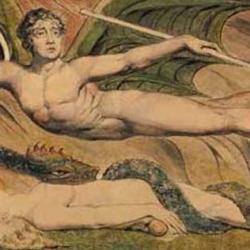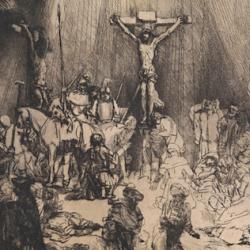Abelard insisted that human beings cannot be held guilty of acts that the did not commit. And there went original sin.
But he also recognized that people suffer evils, and he tied this to the original sin of Adam and Eve. Without repentance, people are heading to eternal damnation. Infants die, but they are not culpable of anything, including original sin. Their deaths seem arbitrary.
Adam Kotsko (Politics of Redemption) examines the consequences. Once the devil’s role has been marginalized by Anselm, the whole of the atonement has to be played out strictly between God and man. Kotsko thinks this creates problems, especially when Abelard adds a rejection of original sin. Kotsko has no brief for original sin, but Abelard’s alternative theory is incoherent and undermines his contributions:
“In Abelard, the [traditional patristic] devil’s role is almost exclusively played by God. As if to bring this point home, Abelard portrays the devil as a kind of subcontractor carrying out punishment duties on God’s behalf. . . . Indeed, God acts in overtly ‘devilish’ ways in Abelard’s account, especially in the light of the fact that the eternal damnation attached to original sin has no connection whatsoever to any actual culpability on anyone’s part, not even Adam and Eve. . . . Thus, while Abelard’s rejection of the traditional concept of original sin seems like a positive step, it nonetheless turns out to be a very destructive move within the terms of Anselm’s constricted version of the patristic theory. In fact, one could argue that it even winds up undermining another salutary feature of Abelard’s theory, namely, his emphasis on the divine love. How loving is it, after all, for God to submit to death in order to pay an exorbitant and apparently arbitrary penalty that God freely instituted? The whole thing comes to seem like a cruel put-on, a crazy scheme to endanger us in order to rescue us and gain our love.”














